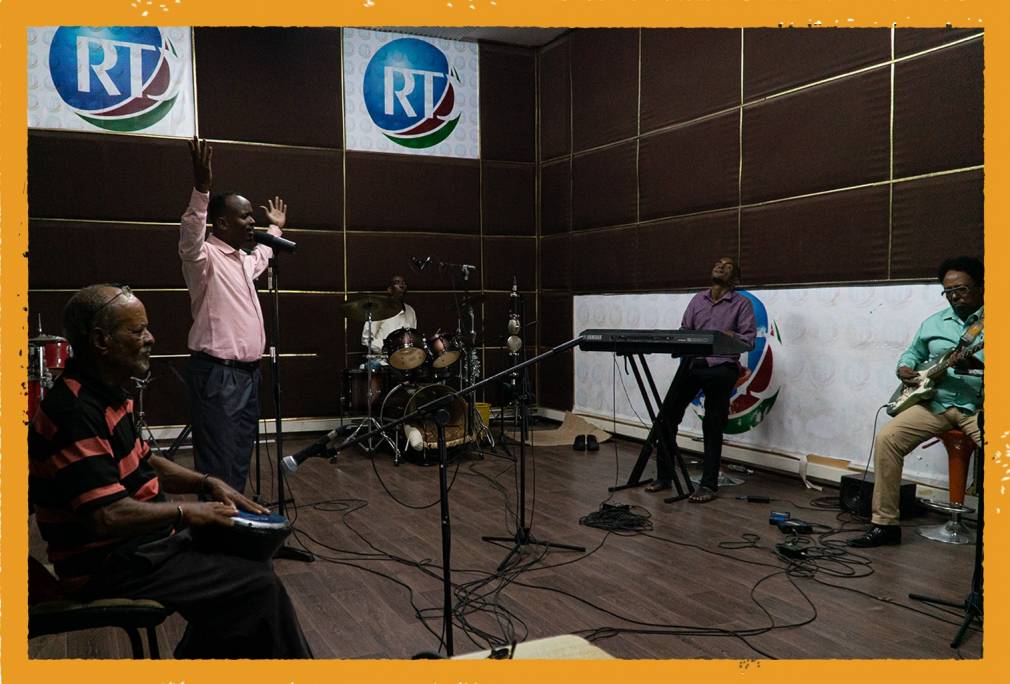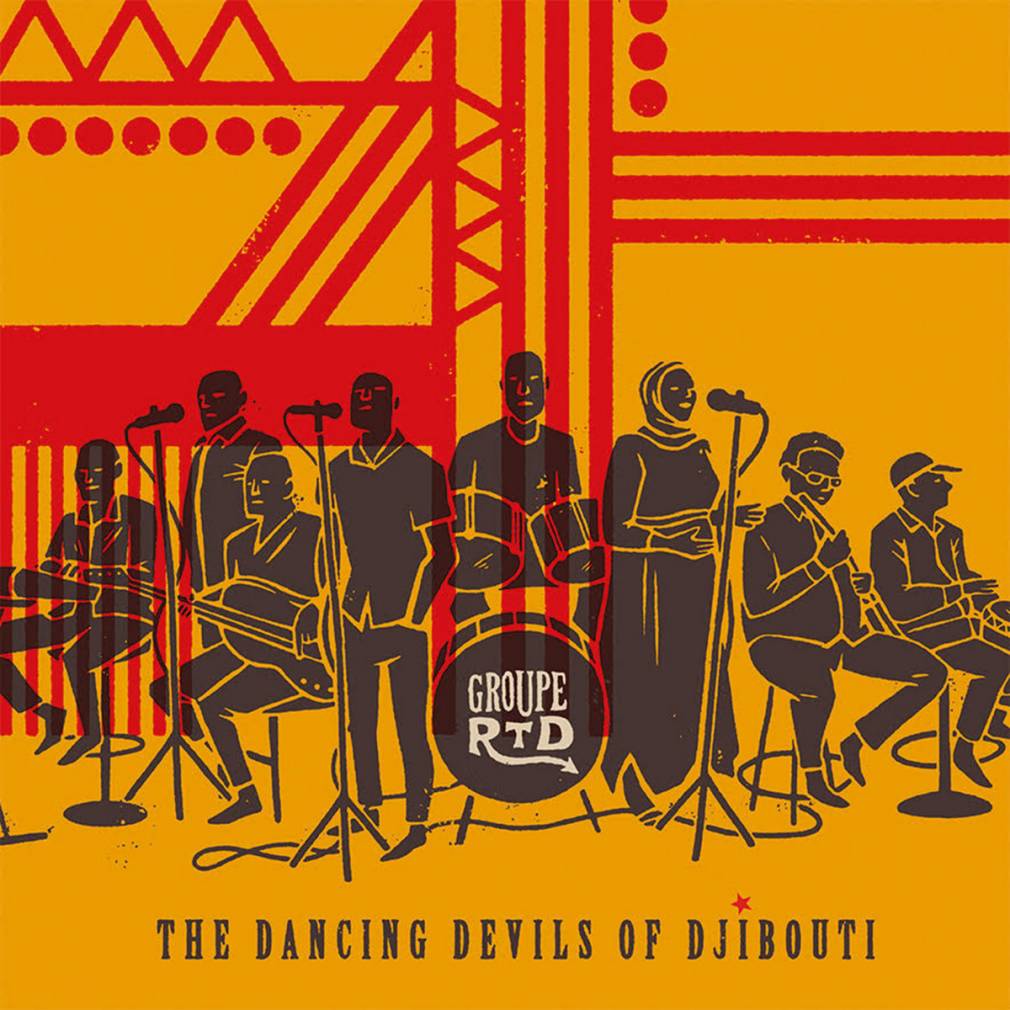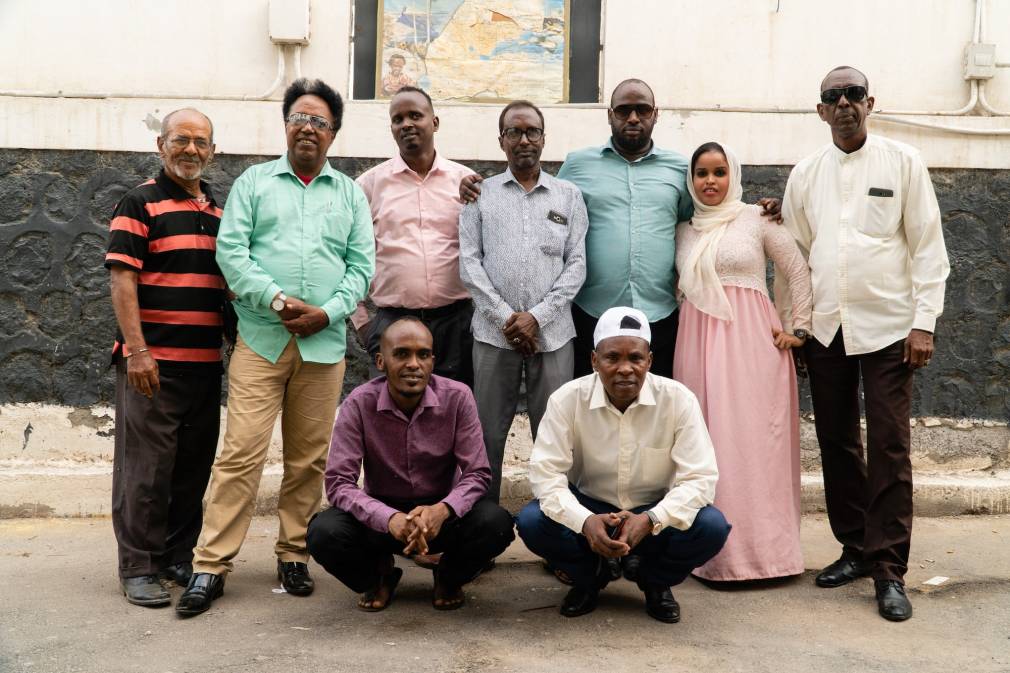Already proud to be able to wave essential compilations dedicated to Sudan, Somalia, Haiti or Cape Verde, Ostinato is now collaborating with the Groupe RTD to record the first ever international album to emerge from Djibouti. PAM took this opportunity to gather more details from Vik Sohonie, the label’s head, while unveiling a preview track.
Since the label’s first release in 2016, each Ostinato project is expected to be a mini-event in itself. Of course, The Dancing Devils of Djibouti is no exception to this rule, and is even a major step forward in the label’s philosophy. In 2016, the label boss Vik Sohonie began approaching the radio authorities in this tiny country in the Horn of Africa with the aim of gaining access to his immense music collection. Ostinato then became the first foreign label to get its hands on these resources which, one thing leading to another, led its leader to meet the musicians of the RTD Groupe (Radio-Television Djibouti), true living embodiments of these archives. Solicited to play at official ceremonies in Djibouti, the group finally came out of the shadows and for the first time covered the world with an amazingly rich and authentic music. Using a mobile studio, they recorded in only three days – a deadline imposed by the authorities – a small masterpiece where influences inherent to their geographical position converge warmly, between Indian music, reggae, jazz and Somali funk.
This release is not a reissue nor a compilation. When did you take the decision to record a studio album this time?
A recorded album was always in mind and is a natural progression. If you introduce Somali music to the world, it’s wise to start with a panoramic historical compilation to allow people who have never heard it before to learn, understand, and appreciate. Then you can give a taste of something contemporary that maintains links with the old. That’s the next step for all the countries we’ve released compilations from. Also, personally, it was a great new exciting challenge. Creating compilations and recording a studio album are very different, and at the end of the day, the bread and butter of music are new recorded albums.
You refer to the media, which sees the Republic of Djibouti as a place where nothing ever happened, with its strategic location in Africa being its only interest. Why have you been interested in that country and what was the trigger?
Djibouti sits on a historic gateway of trade where over 30% of global trade passes through. Historically, many cultures have transited through there, leaving Djibouti with a very cosmopolitan culture and sound. This album first came about when we went to Djibouti to license 2 songs that were on the Sweet As Broken Dates compilation, and we were introduced to this band and the national music infrastructure of Djibouti. The old director of the national radio was very adamant that someone work with all the music that’s sitting in the country and introduced us to the band to give us a taste and we were sold!

You wrote that “no foreign entities have been permitted to work with Djibouti’s rich roster of music, until now”, which sounds like being a paleontologist and showing a new dinosaur to the world. How do you feel about having this privilege, and how did you approach the people to be able to get access ?
We started by meeting all the senior officials in 2016 who showed us the band, the national archive, and all the music Djibouti has to offer. Three years later when we were ready to return, we went through the Djiboutian Ambassador in Germany who helped us greatly, like ensuring Djibouti’s head of customs could clear all the equipment we brought into the country. This was a massive help. From there, it was days of negotiations with many different government officials, as everything needed to be approved by multiple authorities. Dealing with a government bureaucracy isn’t easy because government people aren’t musicians, they’re sometimes more interested in their political capital than the music itself, and they are mostly wondering how this album could help them politically. That would be the same anywhere. After many difficult negotiations, we managed to get approval.
What is the reaction of the band? How do they feel, being heard out of their country?
It is tough for us to convey to the band what is happening overseas. Djibouti has been hard hit by COVID 19 and there were strict lockdowns. The musicians don’t often have access to high speed internet where we can share with them everything, plus Djibouti’s internet, also controlled by the government, is restrictive. We’ve sent them photos of the records — we can’t send copies yet because of shipping restrictions during this crisis — and as press comes in, we’re sending them links and screenshots. It’s very hard for them to get a full feel for it, but I knew this would be the case. So they will feel it most clearly when all this is over and they are ready to tour, and there has already been a lot of interest in getting them shows whenever that’s possible again. I think it won’t come as a big surprise that people love their music, they know how good it is!
Who are those “dancing devils” of the album title?
“The Dancing Devils” is inspired by a Somali play of the same name (in Somali: Sheydaan Bullow / Dancing Devils). This is after all a Somali band as Somali people and culture are spread across East Africa, separated only by artificial colonial borders. This is the Somali music of Djibouti and I remembered the name of this play, which was the name of another very old album from Somalia. I thought it was the perfect description of their fiery music.
Head here to pre-order a copy in advance of The Dancing Devils of Djibouti’s 5th June release.





